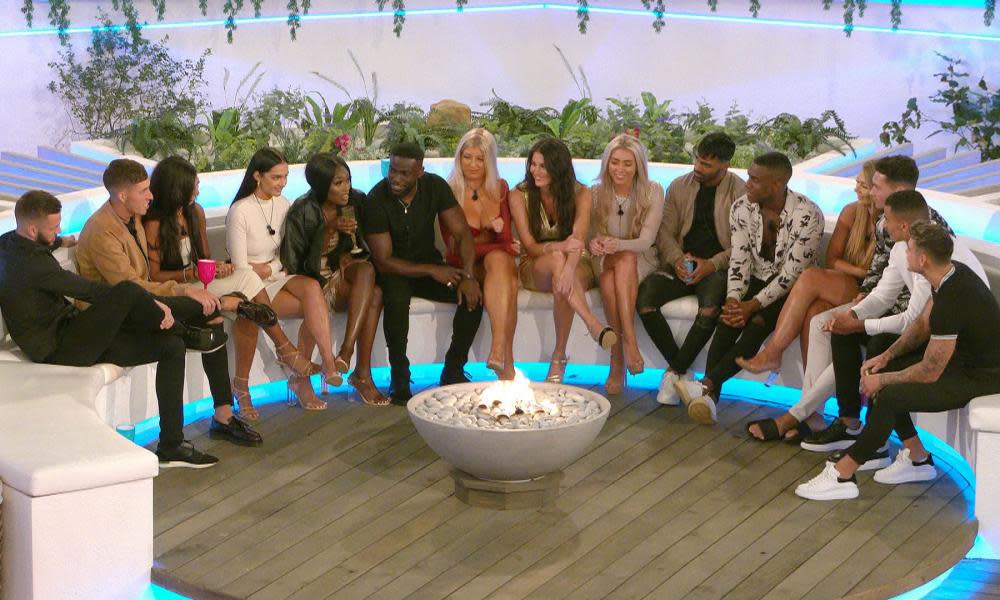Why suicide is still the shadow that hangs over reality TV

For several years, the suicide of contestants who compete on reality TV shows has cast a dark shadow on the genre. Competitors on The Bachelor, Real Housewives of Beverly Hills, The Voice and Gordon Ramsey’s Kitchen Nightmares have all taken their own lives. And just days ago, the suicide of Hana Kimura, a 22-year-old former cast member on the Netflix Japanese reality TV series Terrace House, shocked fans.
Kimura had suffered a huge amount of harassment and abuse online. Inevitably, focus will shift on to how much support the contestants on these shows are offered by producers to deal with the negative attention that follows their appearances. Many hope her passing will serve as a painful eye-opener, a teachable moment, even though this is a lesson we should have learned many times over. This is something that has happened before and, if little changes, is likely to happen again.
According to one newspaper report last year, there have been 38 deaths by suicide of reality TV contestants. One of the most harrowing cases was of an 11-year-old reality star, Neha Sawant, who killed herself following her appearance on the Indian dance competition Boogie Woogie. The story was published before one of the most high-profile deaths had occurred – the tragic death of Love Island presenter Caroline Flack earlier this year, which has become the catalyst for the current conversation on mental health and reality television.
Aside from the lives tragically lost, there are the many contestants who go on to suffer irrevocable damage to their mental health. Ex-Love Islander Alex Miller revealed that he had felt suicidal after leaving the show. Big Brother 10 contestant Sree Dasari was rushed to hospital, after he was evicted from the house to boos and had self-harmed. Eerily, this was near-identical to what happened to a previous winner, Nadia Almada, after she returned to the show for the Ultimate Big Brother series and was hospitalised less than a week afterwards.
This is by no means a new issue; rather, it is one that has been largely ignored. The suffering of contestants has been brushed aside, due in part to a snide type of victim blaming that is specific to reality TV. A persistent public view remains that those who are cast in these programmes are “fair game”: any vicious abuse that befalls them in the aftermath is their fault, by virtue of having opted to take part. It has meant that the duty of care that is owed by these shows to those who take part has been overlooked. The aftercare on several shows appears to be nonexistent and the psychiatric evaluations that take place ahead of casting have been widely criticised.
Even the deaths of Love Island contestants Mike Thalassitis, 26, in 2019 and Sophie Gradon, 32, in 2018 did not drive home how persistent a problem this is. It took the apparent suicide of Jeremy Kyle guest Steve Dymond, who had failed a lie detector test on the show, to prompt the long overdue government inquiry on the link between reality TV shows and suicide, just as Kimura’s death has led to Japanese government officials calling for action against cyberbullying.
Dymond’s death resulted in the The Jeremy Kyle show being taken off air, a decision that pleased as many as it confused. Love Island is still a feature on our screens, despite three deaths out of 100 or so contestants in the space of three years. In the wake of this, ITV announced new duty-of-care guidelines, which outlined that contestants will be provided with psychological consultation throughout the series and will receive “proactive” contact from show representatives for 14 months after leaving the series. It also offered “bespoke training on dealing with social media and advice on finance and adjusting to life back home”. Less than a year after the new guidelines were published, Flack had taken her own life.
It is too simplistic to condemn this issue as a Love Island problem, a Jeremy Kyle problem or a Terrace House problem. The banning of one particularly hateful or hyper-visible show does not rid us of the societal scourges that may contribute to these untimely deaths, such as a culture of bullying online and a lack of accessibility to mental health services. Abolishing the genre altogether will not end self-harm in young people – it is impossible and wrong to attribute suicide to a single event in people’s lives.
But it is impossible to ignore how the fame that reality TV provides, combined with a lack of crucial care for those involved, makes a possibly dangerous situation potentially deadly. Although some programmes are taking steps to better safeguard contestants, producers cannot wait until the next tragedy to make much-needed changes.
In the UK and Ireland, Samaritans can be contacted on 116 123 or email jo@samaritans.org or jo@samaritans.ie. In the US, the National Suicide Prevention Lifeline is 1-800-273-8255. In Australia, the crisis support service Lifeline is 13 11 14. Other international helplines can be found at www.befrienders.org.

 Yahoo News
Yahoo News 
